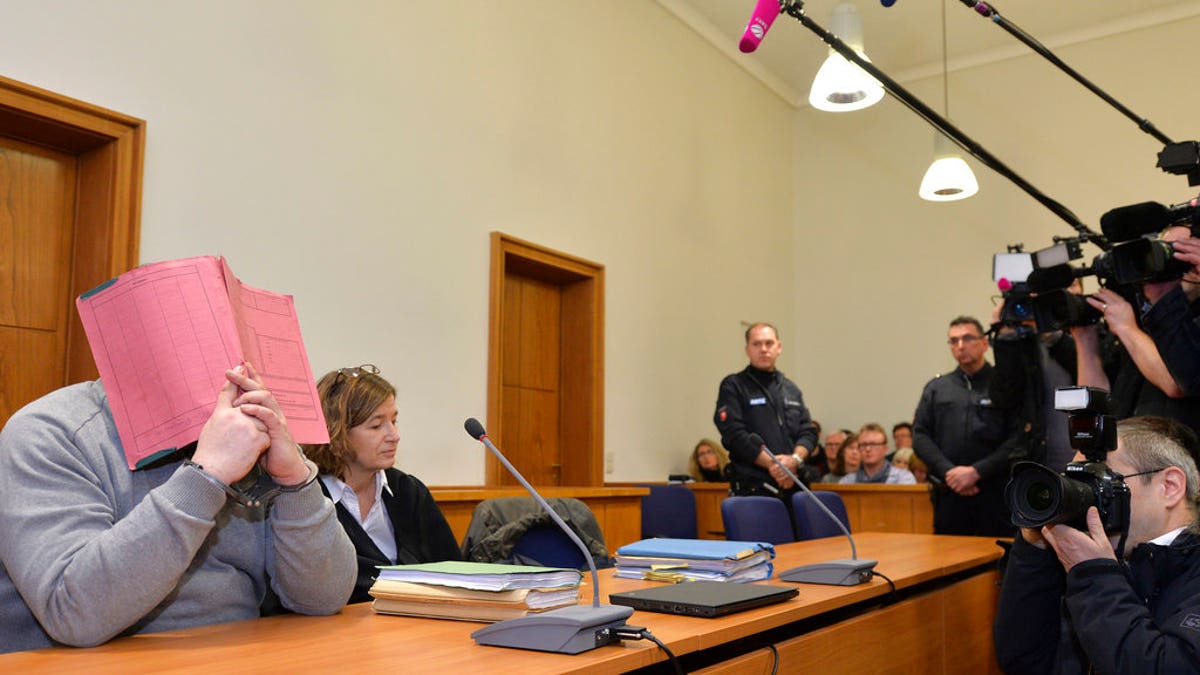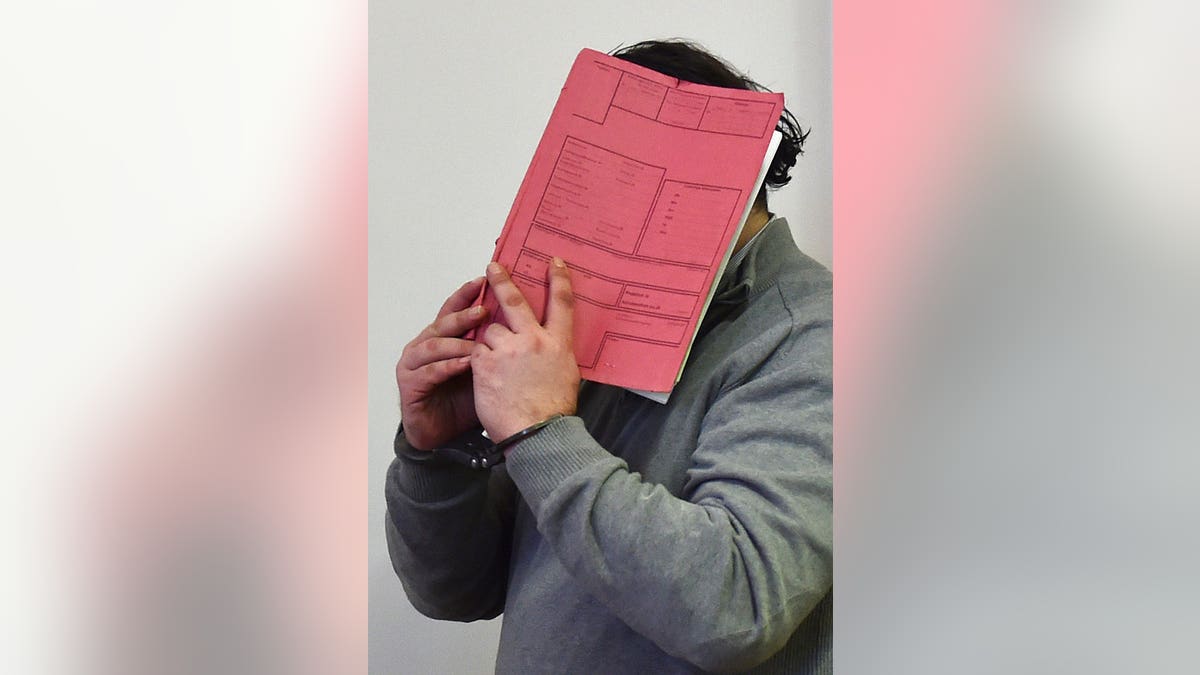
German nurse Niels Hoegel, hiding his face behind a red booklet, told investigators he killed patients and brought about 90 patients to "cardiac crisis." (AP)
A nurse in Germany who was convicted of murdering two patients through overdoses of heart medication may have killed nearly 100 people throughout his career, prosecutors revealed on Monday.
Niels Hoegel, 40, was convicted in 2015 in the death of two people and the attempted murder of two others at a hospital in the northwestern town of Delmenhorst. Hoegel was sentenced to life in prison, but prosecutors uncovered more people they believe he had killed.
"Eighty-four killings ... leave us speechless," John Kuehme, police chief in Oldenburg, said. "And as if all that were not enough, we must realize that the real dimension of the killings by Niels H. is likely many times worse."

Former nurse Niels Hoegel is accused of killing nearly 100 patients throughout his career. (AP)
Kuehme said Monday they began investigating after Hoegel was convicted of attempted murder in another case. Deaths of hundreds of former patients in Delmenhorst and Oldenburg were investigated, leading them to unearth evidence of 84 other killings he had not been convicted of. The identities of the 84 people were not released.
The number of actual murders is likely higher because some possible victims were cremated, making it impossible to gather evidence, Kuehme said.
Hoegel, who worked at Oldenburg hospital from 1999 to 2002 and in Delmenhorst from 2003 to 2005, admitted during his trial he enjoyed the feeling of being able to resuscitate his patients when they went into cardiac arrest. He also told investigators he killed patients in Oldenburg and brought about 90 patients to "cardiac crisis."

Former nurse Niels Hoegel, accused of multiple murder and attempted murder of patients, covers his face with a file at the district court in Oldenburg, Germany. (AP)
Kuehme blamed local health authorities for failing to contact officials when they suspected possible wrongdoing. Medical workers' suspicion about Hoegel could have traced back to as early as April 2003, when they noticed the number of resuscitations.
"If the people responsible at the time, particularly at the Oldenburg clinic but also later in Delmenhorst, hadn't hesitated to alert authorities — for example police, prosecutors —" Hoegel could have been stopped earlier, Kuehme said.
Prosecutors are expected to try Hoegel on at least some of the additional killings, but Germany's judicial system does not allow for consecutive sentences, so future convictions won't affect his life term.
The Associated Press contributed to this report.
